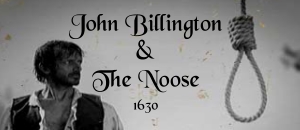 John Billington is my 10th-Great Grandfather on the Crosby side. John was born about 1580 in Lincolnshire, England and arrived in the New World, in 1620, aboard the Mayflower. John was no “Saint” — he was in fact, a “Stranger.”
John Billington is my 10th-Great Grandfather on the Crosby side. John was born about 1580 in Lincolnshire, England and arrived in the New World, in 1620, aboard the Mayflower. John was no “Saint” — he was in fact, a “Stranger.”
The passengers of the Mayflower were a mixed lot and not all were equally religious. There were two groups of passengers on the Mayflower. There were those who were leaving England (or fleeing in some instances) for religious reasons and they were known, collectively, as the “Saints.” The “Saints” were the religious separatist and most people today know them as the “Pilgrims.” The other group was known as the “Strangers”. The “Strangers” were comprised of some of the ship’s crew who opted to remain in the New World and others who made the voyage for economic reasons.
While all of the “Strangers” were seen as a threat, it was Billington and his family who were singled out as responsible for some tensions on board the Mayflower crossing the Atlantic” ¹
Strained Relations
- From the start, the Billingtons did not endear themselves to their fellow passengers. They had sufficient wealth to rate a private cabin, while the others were forced to live in very cramped quarters.
- There was nearly a mutiny when the ship went off-course during the voyage and John Billington was part of the group threatening the take over.
- Sometime during the voyage, one of the Billington children accidentally fired a gun near a powder keg in the ship’s hold. The ship surely would have been destroyed if the keg ignited.
- William Bradford placed the blame for his wife’s death on the Billington children. Although it was not clear if Mrs. Bradford fell from the ship accidentally or if she committed suicide, Bradford blamed the constant mischievousness of the Billington children for the death.
- By the time the Mayflower landed at Plymouth, the “strangers” outnumbered the “saints”, 51 to 32 and the Puritans were concerned about the governance of their colony.
- In 1620, John Billington insulted Miles Standish, the military adviser for the settlement, by questioning his authority. As punishment, Billington’s neck and feet were bound together as a form of public humiliation.
- In 1624, John Billington was accused of sending secret letters to England in an effort to undermine the colony. However, no proof was ever brought to charge him.
[John Billington] and some of his [family], had been often punished for miscarriages before, being one of the profanest families amongst [the colony]… ²
New World Cain
In September 1630, John Billington was involved with a continuing feud with John Newcomen. Newcomen did not arrive on the Mayflower, but he was a “Saint” nonetheless. Newcomen had a habit of hunting game on John Billington’s land. Billington also accused Newcomen poaching by stealing from his traps. One day Billington came across Newcomen hunting on his land and Newcomen hid behind a tree. Billington, who was known as an excellent shot, said that he shot at Newcomen to scare him away. As luck would have it, Billington’s ball struck Newcomen in a shoulder and several days later he died from infection. John Billington was charged with murder.
In his manuscript Of Plimouth Plantation, William Bradford wrote:
So when this wilderness began first to be peopled by the English where there was but one poor town, another Cain was found therein, who maliciously slew his neighbor in the field, as he accidentally met him, as he himself was going to shoot deer. The poor fellow perceiving the intent of this Billington, his mortal enemy, sheltered himself behind trees as well as he could for a while; but the other, not being so ill a marksman as to miss his aim, made a shot at them, and struck him on the shoulder, with which he died soon after. The murtherer expected that either for want of power to execute for capital offenses, or for want of people to increase the plantation, he should have his life spared; but justice otherwise determined.” ²
In short, according to this account, Billington maliciously and intentionally murdered Newcomen. “Strangers” had a different story to tell, however, declaring that Newcomen had been “interfering with Billingtons [sic] hunting” by robbing his traps and chasing away the game upon which the Billington family relied. This was not an isolated event; on numerous occasions Newcomen had been warned away. At this particular time Billington came across Newcomen poaching on his land and threatened him with his gun. Indeed, Newcomen fled and hid behind a tree. Billington, an excellent marksman, actually fired a scare shot never intending to actually hit the youth. But, due to his own carelessness, the boy allowed a shoulder to protrude from its shelter and was struck with a superficial wound. Billington quickly summoned assistance and helped the injured man into the village to see a doctor. It was a slight wound but through his own recklessness and exposure Newcomen took cold. Infection and gangrene followed and after several days he died. Shortly after, Bradford had Billington arrested to be held for trial. ³
Sometime near the end of September in the year 1630, John Billington was hanged for the murder of John Newcomen. Sadly, no records of his trial remain. Billington was the first person executed in the New World. The location of his burial is not known.
My descent from John Billington (12 Generations):
John Billington > Francis Billington > Martha (Billington) Eaton > Samuel Eaton > Barnabas Eaton > Hannah (Eaton) Clements > William Clements > William Clements > Jane (Clements) Crosby > John Crosby > Roy Crosby > Maurice Crosby > Me.
Sources
1. John Billington: Mayflower Pilgrim Executed for Murder; http://historyofmassachusetts.org/john-billington-mayflower-pilgrim-executed-for-murder/
2. Of Plymouth Plantation, William Bradford, 1651
3. Pilgrim Justice; http://my.ilstu.edu/~ftmorn/cjhistory/casestud/billingt.html
4. John Billington Family; http://www.mayflowerfamilies.com/mayflower/john_billington_family.htm

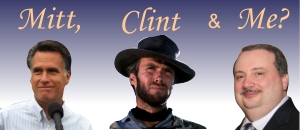
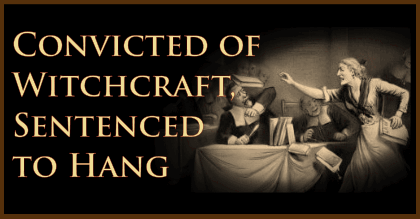

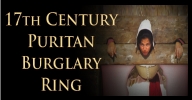
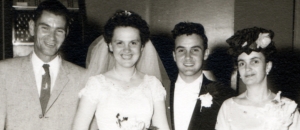
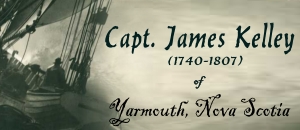
Hi! I am also a descendant of John Billington. I enjoyed reading this article, as there were a few things here I didn’t know!
I have long been suspicious of the stories told about John. Im sure they’re true, but as we all know, the victor writes the history. I wondered if Bradford had some reason for not liking the Billington’s, and if your story about his wife dying on the Mayflower is true, I may finally have my smoking gun! I think the Billington name was drug through the mud by design, and Bradford welcomed the opportunity to see him hanged. Thanks for posting this.
Hello cousin. Its cool that you are a patrilineal descendant. There is a lot written about history being skewed by Bradford. Conveniently, Bradford wrote the only first-hand account/history of the Plymouth colony. He probably felt compelled to blame the Billington’s for his wife’s suicide – the most egregious of all sins. But this is a society who, some 60 years later, would start hanging people for being witches.
I’m glad you enjoyed the article.
Moe
I’m also a descendant. Thank you for the insight into our family tree. It is exciting to have this in our heritage. Very interesting article.